13-8.
All Hearts' Day
(February 14, 45, 410) was half a
year away from the Tail of the Goat (August 13, 45 +
180, 590):
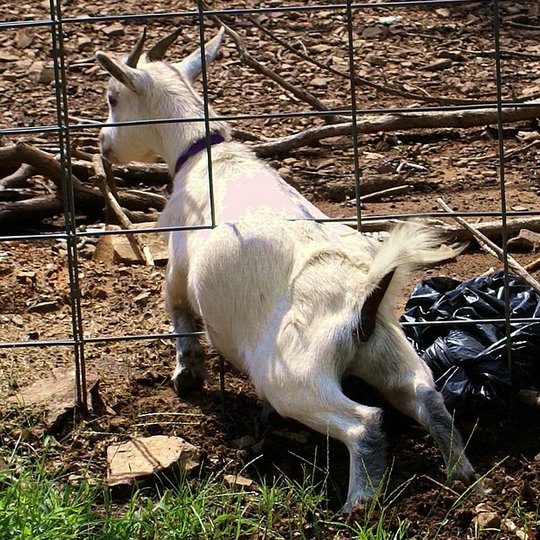
 |
 |
 |
 |
|
Eb4-22 (129, 455) |
Eb4-23 |
Eb4-24
(→ 4 * 42 = 168) |
Eb4-25 |
|
manu rere atu |
manu rere |
manu ariga nuku |
henua - kiore |
|
Rere. To jump; to run; to fly.
Rere-taúra, to carry a child astride on
one's shoulder: ku rere-taúra-á i te poki e
te matu'a ki te gao, the mother carries her
child astride her neck. Vanaga. 1. To fly, to
run, to leap, to scale, to be carried away by
the wind; ika rere, flying fish; rere
aruga, to rebound; hetuu rere,
meteor, flying star. Hakarere, to leap. P
Pau.: rere, to soar, to fly; fakarere,
to precede. Mgv., Ta.: rere, to fly, to
leap. 2. To come, to reach to. Mq.: éé mai,
to come. 3. To swerve, to deviate. (4.
Hakarere, to cease, desist, postpone, quit,
vacation; tae hakarere, perseverance.
Mq.: rere, to disappear. 5. Hakarere,
to save, preserve, put, place, reserve, burden,
destine. 6. Hakarere, to abandon,
forsake, give up, depose, expose, leave, omit,
abjure, repudiate; hakarere ki te hau,
uncover the head; hakarere ki te vie, to
divorce, hakarere ki raro, to put down,
tooa te kiko e ivi i hakarere, to strip
off the flesh. Mq.: éé, to run away, to
escape. 7. Hakarere? Ikapotu hakarere,
to abut, to adjoin; e tahi hakarere,
synonym.) Churchill. Vi.: Lele, the end
of a branch farthest from the body of a tree;
leletha, to bend a branch in order to gather
the fruit on it. Churchill 2. In the present
phase of Polynesian lele so much means to
fly that the plainest way of particularizing
birds is to describe them as the flying animals,
manulele. But to manifest that flight, an
exercise or balancing of wings, was by no means
the primordial sense, for how could that give
rise to a description of water in the
water-courses? It will be no end to mass the
several significations which lele
exhibits ... Flight of birds ... Wind drive ...
Meteors ... To leap ... To run ... Flow of water
... To swim ... To sail ... These several
activities are exercised in earth, air, and
water. The common factor is the swift motion.
The means of motion cut no figure. It is an
invisible means in the driving of the wind, the
flash of the meteor silent athwart the sky on
its lethal errand, the slip and slide of the
stream in its deep course, the set of the sea,
the gliding of the canoe upon its surface.
Churchill 2. |
|
VISIBLE CLOSE TO
THE FULL MOON: |
|
Creation of our present world
UKDAH (Knot) =
ι
Hydrae (145.4),
κ
Hydrae (145.5),
SUBRA =
ο
Leonis
(145.8)
ALPHEKKA MERIDIANA
*104.0 = *145.4 - *41.4 |
5
Imix 9 Kumk'u
Rishu A.-13 (Head of
the Lion)
ψ Leonis (146.4),
RAS ELASET AUSTRALIS = ε Leonis
(146.6)
*105.0 = *146.4 - *41.4 |
VATHORZ PRIOR = υ Carinae
(147.9) |
υ¹
Hydrae (148.4),
RAS ELASET BOREALIS (Northern Head of the Lion)
=
μ
Leonis
(148.7)
*107.0 = *148.4 - *41.4 |
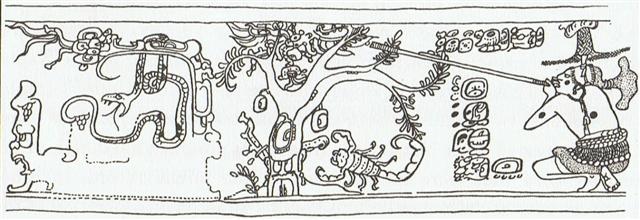 |
|
Aug 13 (225 =
141 + 84) |
14 (45 + 181) |
15 (227 → 22
/ 7 → π) |
16 |
|
"July 3 (184
= 225 - 41) |
4 |
5 |
6 (*107) |
|
JUNE 10 (161
= 225 - 64) |
11 |
12 |
13 (*84) |
|
... Midsummer is the flowering season of the oak,
which is the tree of endurance and triumph, and like
the ash is said to 'court the lightning flash'. Its
roots are believed to extend as deep underground as
its branches rise in the air - Virgil mentions this
- which makes it emblematic of a god whose law runs
both in Heaven and in the Underworld ... The month,
which takes its name from Juppiter the oak-god,
begins on June 10th and ends of July 7th. Midway
comes St. John's Day, June 24th, the day on which
the oak-king was sacrificially burned alive. The
Celtic year was divided into two halves with the
second half beginning in July, apparently after a
seven-day wake, or funeral feast, in the oak-king's
honour ...
.jpg) |
|
THE SUN: |
|
Mahar sha hi-na
Shahū-26 (Western One in the Tail of the Goat)
NASHIRA
(Fortunate One) =
γ Capricorni
(328.0),
ν
Oct. (328.3),
AZELFAFAGE (Tail of the Hen) =
π¹
Cygni,
κ
Capricorni (328.7) |
Arkat sha hi-na
Shahū-27 (Eastern One in the Tail of the Goat)
ENIF (The Nose) =
ε
Pegasi, ERAKIS =
μ
Cephei
(329.2),
46 CAPRICORNI, JIH (the Sun) =
κ
Pegasi
(329.3),
ι
Piscis Austrini (329.4),
λ
Capricorni
(329.6),
ν
Cephei (329.7),
DENEB ALGIEDI
=
δ
Capricorni
(329.8)
*288.0 = *329.4 - *41.4 |
θ
Piscis Austrini (330.1),
λ
Oct.
(330.7) |
KUH (Weeping)
=
μ
Capricorni (331.4),
γ
Gruis (331.5)
*290.0 = *331.4 - *41.4 |
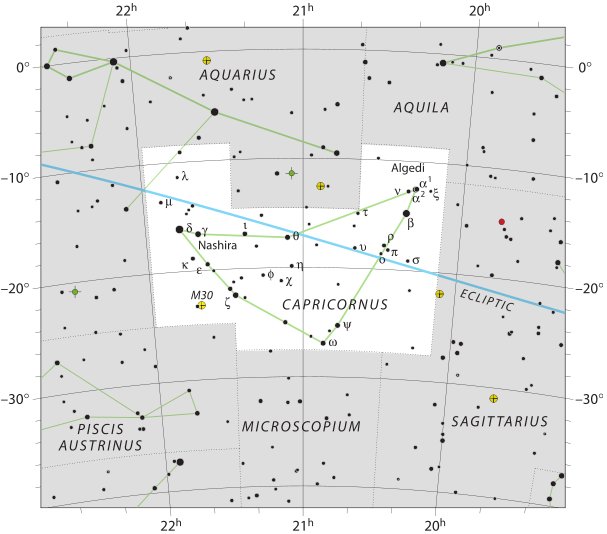
Could the First 3-stone (tau-toru) Place
refer to the string (tui) of stars
('stones') between
γ and λ (→ γ inversed)?
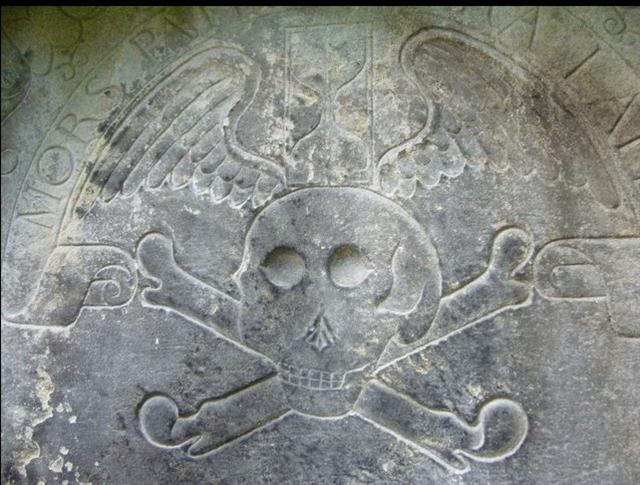 |
|
"Jan 2 |
3 (368 = 185
+ 184) |
4 |
5 (370 = 80 +
290 = 354 + 16) |
... The Hawaiian woman who was interviewed chuckled because
the assassination of Captain Cook coincided with the day we
have named All Hearts' Day - when in February 14
(2-14) the war-god Kuu returned to power ...

 |
 |
|
Eb4-26 |
Eb4-27 → 7 *
42 = 294 |
|
te maro - te vai - te
tagata |
te henua te kiore |
|
VISIBLE CLOSE TO
THE FULL MOON: |
|
TSEEN KE (Heaven's Record) =
φ
Velorum
(149.9) |
ν Leonis (150.1), π Leonis (150.6) |
|
Aug 17 (229) |
18 |
|
"July 7 (188) |
8 |
Metoro indicated a reversal, i.e. here
returning to normal, after
Eb4-27:
... For in all the confused Tolstoian
narratives of the affray - among which the judicious
Beaglehole refuses to choose - the one recurrent
certainty is a dramatic structure with the properties of
a ritual transformation. During the passage inland to
find the king, thence seaward with his royal hostage,
Cook is metamorphosed from a being of veneration to an
object of hostility. When he came ashore, the common
people as usual dispersed before him and prostrated face
to earth; but in the end he was himself precipitated
face down in the water by a chief's weapon, an iron
trade dagger, to be rushed upon by a mob exulting over
him, and seeming to add to their own honors by the part
they could claim in his death: 'snatching the daggers
from each other', reads Mr. Burney's account, 'out of
eagerness to have their share in killing him'. In the
final ritual inversion, Cook's body would be offered in
sacrifice by the Hawaiian King ...

 |
 |
 |
 |
|
Eb4-28
→ 2 * 2-14 |
Eb4-29
(136) |
Eb4-30 |
Eb4-31
(464) |
|
ku hakapau hia |
te henua |
te henua |
kiore - henua |
|
Pau.
1. To run out (food, water): ekó pau
te kai, te vai, is said when there is an
abundance of food or water, and there is no
fear of running out. Puna pau, a
small natural well near the quarry where the
'hats' (pukao) were made; it was so
called because only a little water could be
drawn from it every day and it ran dry very
soon. 2. Va'e pau, clubfoot.
Paupau: Curved. Vanaga. 1. Hakapau,
to pierce (cf. takapau, to thrust
into). Pau.: pau, a cut, a wound,
bruised, black and blue. 2. Resin. Mq.:
epau, resin. Ta.: tepau, gum,
pitch, resin. (Paupau) Hakapaupau,
grimace, ironry, to grin. 3. Paura
(powder), gunpowder. 4. Pau.: paupau,
breathless. Ta.: paupau, id. 5. Ta.:
pau, consumed, expended. Sa.: pau,
to come to an end. Ma.: pau,
finished. 6. Ta.: pau, to wet one
another. Mq.: pau, to moisten.
Churchill. Paua
or pāua
is the Māori name given to three
species of large edible sea snails, marine
gastropod molluscs which belong to the
family Haliotidae (genus Haliotis),
known in the USA as abalone, and in the UK
as ormer shells ... Wikipedia |
|
VISIBLE CLOSE TO
THE FULL MOON: |
|
υ² Hydrae (151.8) |
Al Jabhah-8 (Forehead)
/
Maghā-10 (Bountiful)
/
Sharru-14 (King)
10h (152.2)
AL JABHAH =
η
Leonis (152.4),
REGULUS
(Little KIng)
=
α
Leonis
(152.7)
*111.0 = *152.4 - *41.4 |
λ Hydrae (153.2) |
ADHAFERA
= ζ Leonis,
TANIA BOREALIS (Northern Gazelle) = λ Ursae
Majoris,
SIMIRAM = ω Carinae
(154.7) |
|
Aug 20 |
21 |
22 |
23 |
|
"July 9
(*110) |
10 |
11 |
12 (193) |
|
JUNE 16 |
17 (168)
→
42 * 4 |
18 |
19 |
Probably the creator of the E text stated that
here 'Earth' would separate into a pair (above and
below) - because now (i.e. 8 days after the Head of
the Lion) the Full Moon should be at the right
ascension line of the Little King:
 
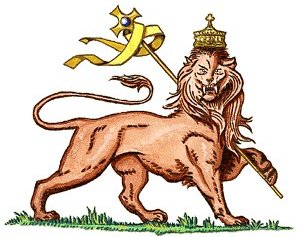
|





.jpg)







